With his sci-fi thriller pre://do.mai.n, author Christopher Godsoe isn’t interested in painting a dystopian vision for the future — society as we know it can be ugly enough. That is, until you’re prepared to fight for it.
In this wide-ranging interview, Chris expands on the themes in the book, considers the implications of technology’s march towards augmented reality, and looks at what’s next for the planned three-book series.
pre://d.o.mai.n • By Christoper Godsoe • 395pp • Released December 2nd, 2013
Note: This is my second in a series of three posts covering the launch of Christopher Godsoe’s new sci-fi thriller, pre://do.mai.n, available online today. Read my review of pre://d.o.mai.n, online now. Coming on Wednesday, part 2 of my interview, where we talk about Chris’ experiences writing the book and his take on the current state of publishing.
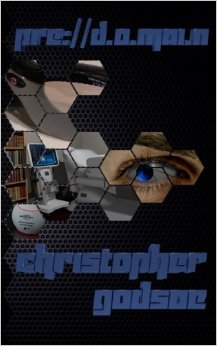
I find it hard to overstate their importance. There are plenty of other challenges that might be more pressing in the short term, such as clean air, water, food and global warming, but economic equality (to the extent that it exists today) and the omnipresent surveillance/police state are slowly robbing us of what this country possessed more than anyone else, and that is creative problem solving and unshakeable optimism. Innovation is not an efficient process. It requires risks to be taken when trying out unproven ideas, and when 99% of the population is forced to make due with disproportionately less than the top 1%, then innovation halts. That 99% are forced to spend their money and time on proven processes and products because they just can’t afford to take risks. When you’re stuck worrying about paying for food every week, there is less leeway to try new cuisine and to learn new things, because you can’t afford for it to not work out as well as what you have already been doing.
Most families in this country are living week to week, if they take a risk like going back to school to better themselves and find out they can’t make it work, the financial aftermath will be so prolonged and difficult that they will probably never take another risk again. That’s not in 2037, that’s happening now. Even if you witness someone else go through something like that, it’s discouraging.
The constant surveillance of our own people goes hand in hand with that. I believe that if you treat people like criminals, eventually they will cease to see the benefit in proving you wrong. If they are already facing many of the consequences of breaking the law, the deterrents of the justice system lose their teeth. The saddest part of all of this being that there are citizens in this country that are worse off than many of the criminals. How sad is it that there are people out there that break the law just so they can get warm meals in prison?
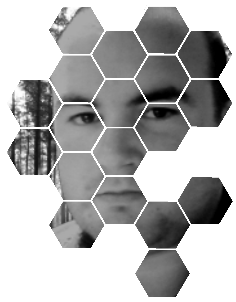
I think it’s common to eye new technology with skepticism. The printing press, the telephone, the internet, cell phones…..all of them at one point were seen and contributing to the downfall of society. It’s common to fear that which you don’t understand, because as you said, there is the possibility that our ability to use them will always precede our ability to use them for good. I believe that the evolution of technology will eventually bring us together more than it tears us apart. The current “growing pains” we are going through in regards to social media stem from us getting used to having more and more of our lives out there in the open.
Our thoughts spread further, our lies are more easily discovered. I see our relationship with technology much like a human being learning to speak, and only discovering the problems that saying the wrong thing at the wrong time can bring once they’ve already done it. As a species, we make mistakes. It’s what we do. It’s how we learn, it’s how we grow, and it’s how we become better. Even our muscles are designed to come back stronger from the minute tears caused by exercise. So I don’t really see technology as the downfall of civilization. We learn new lessons from each new paradigm of communication, and we carry those lessons with us. The printing press taught us that our words can outlive us, so we should choose them carefully. The telephone taught us that our words can be just as effective when we are not present as when we are. The internet taught us that the form of communication isn’t as important as what is being said, and that with anonymity, there isn’t always a burden of proof. People need to be their own judge of character, to question what they see and measure everything they’ve hear against everything they’ve heard. If the end result of social media is that we stop lying to each other so much, for fear of discovery, I will consider it useful.
Without giving too much away, two of the main characters in the book are on quests: Miles is seeking a cure for his mother’s cancer (not really a spoiler as that’s explained early); Maldovan is attempting to make up for a personal failure in his past. Though both are altruistic in their goals, they are both also willing to compromise ethically on their methods. Is the book making the case that the ends justify the means (particularly if the ‘ends’ are destructive), as long as the ends are noble to the person seeking them? Even in a society where many people feel an increasing lack of control compared to governments and corporations, is there any downside to this type of reactionary justice?
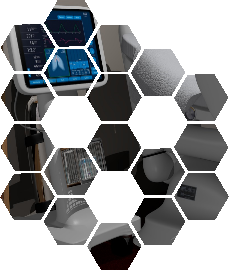
1. What would you do if you were in Miles’ situation. Would you risk prison to save someone you love?
2. Is the concept of telling right from wrong a social agreement, capable of changing/evolving, or static?
3. What is more important in someones life-Their relationship to their work or their relationships to other people? Why?
Above, I indicated that I think we are all products of circumstance. Sitting there in your livingroom or office, reading this interview, the concept of killing another person is abhorrent. At 2AM, when an intruder is preparing to shoot one of your family members inside of your own house, most people would feel differently. Sure, you could rationalize it by saying that the intruder made the choice for you by breaking into your house and threatening your family, but you still in the end made the choice that the life of your family member was more important than that of the intruder. Even if for no other reason than you were the one holding the gun, you still took it upon yourself to make a horrible decision. Most of the time, our decisions in life are not that obviously justifiable, nor are we able to judge the consequences so easily.
I think that in the end, if you can sleep at night (and you’re not a psychopath), then the ends can be seen justifying the means. In Miles instance, the government and insurance/pharmaceutical companies were an intruder threatening the life of someone he loved. Maldovan’s situation is much less dire, but he’s also not being asked to break the law to correct it. It’s all a gray area, and it’s important for us to ask questions of propriety like that, it’s the only way to refine our sense of fairness and justice.
In the book, Miles finds himself repeatedly struggling with how to feel towards some incredibly life-like, but decidedly not human, co-conspirators. In some cases he feels guilty about treating virtual people like machines; only to then feel strange when he treats them like people. This awkward inner battle will only grow more real as our technology continues to evolve — how do you think us outside the book will adapt to the continuing anthropomorphism of our technology?
Sadly, with fear. At least, initially. We have been constantly fed a diet of robots/artificial intelligences/androids as warmongers in the media. Many view the singularity, the point in the future where artificial intelligence becomes self aware, as the beginning point of the downfall of civilization. Fear sells movie tickets, it’s easy to manufacture, and it works on almost everyone. As products go, it’s pretty effective. Our government seems to mainly consist of different lobbies clamoring for the microphone, all trying to tell us what new thing we should be afraid of today. So far, they’ve been resigned to pointing the finger at other governments, different religions, chemicals and new ways of doing things. Eventually, synthetic organisms will evolve to being able to make their own choices, and small-minded people will be afraid of that. They’ve been told that the inevitable conclusion will be all out war for the planet, so they will prepare crippling legislation in an attempt to control it. The government sees themselves as the only real authority to be trusted, and even amongst themselves that’s not something they can agree on most of the time. Synthetics will likely get it from all sides, because in a sense they are free agents, not beholden to a specific country or religion. They will have no allies, outside of the corporations that gave birth to them in their original form, and that support will fade once they start making their own calls.
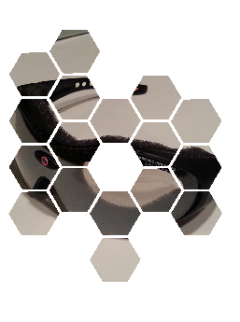
It’s happened before, many times over. With women. With African Americans. With Homosexuals. It takes time to prove to the powers that be that they are wrong. Eventually we get it right, but there’s always an ugly adjustment period. I take the fact that we aren’t turning fire hoses on the Gay Pride Parade as a good sign of progress, of hope that we are learning from our mistakes. The farmyard made fun of Chicken Little, but he has nothing on us humans.
Other than the themes covered in the book, what other big challenges do you feel we’re facing that you either didn’t have room to include, or might like to cover in another book?
Good question! In each of the books moving forward, I have specific themes I want to explore. Some of the more important ones include overpopulation, (both in the traditional sense and in regards to the prison system) the further exploration of “self”, how religion might evolve or clash against upcoming advances in technology, and how the technology introduced in this book and the ones to come will shape our lives in unexpected ways. In Maine we’re no stranger to severe weather, and it’s not until the power goes out that we realize how much technology impacts our lives.
I’m making the book sound like it’s all about grand societal challenges even though it’s also pretty crude and funny at times. There are a number of few funny moments; my favorites are when Miles interacts with others. How do you decide when to balance the crude and/or funny with the high stakes that the characters are facing? Do those parts write themselves as you get to know the character, or do you make sure to place them throughout to lighten up the tone?
I wanted all of the characters to be realistic, and realistic people are often crude. We like to think we’ve progressed past vulgarity and crude jokes, but the reason they are still around is that they’re still funny. It’s useful to remember that we’re all just people, not the titles our professions give us or the expectations placed on us by others. People don’t always react to every situation appropriately, and I for one hope we never do. It’s been said that variety is the spice of life, but I think it’s vulgarity. Comedians that swear as a part of their act generally do better, and videogames with graphic content outsell everything else. I think for all of our posturing as a society, we enjoy vulgarity and crudeness more than we like to admit. There will always be people that get offended, that think that the vulgarity is itself the problem, but I think that accepting the part of ourselves that laughs at it is more progressive than trying to pretend it doesn’t exist.
Miles seems to be incredibly self-aware of his own discomfort with people, yet remains kind and optimistic throughout, and tenaciously so (thinking of when he returns to visit an ex-girlfriend even after awkward encounters). Is Miles’ self-awareness and willingness to be comfortable with himself a major factor in his coping with his mother’s illness and the challenges it brings?
He has spent much of the past year working internally to overcome the feelings of his mothers illness, and it’s something that has changed who he is as a person on a fundamental level. There are only brief references to how he took things for granted before her diagnosis, but he mostly sees past all the negative parts of his personality now, because of how we tend to remember only the parts we want to. His introspection is a product of that, and in a sense he doesn’t yet have a chance to turn it off. He doesn’t have anything in his life to fill that gap, so when he runs into his ex girlfriend he’s reluctant to push her away. He knows it’s probably a bad idea to try to reconnect with her, but he’s lonely and on a subconscious level very lost emotionally. He feels hollowed out, empty, and thinks that whatever new human interaction he can get has to be better than sitting in his room wishing there was more he could do. He’s also in his way preparing for the possibility of his mothers death by making new connections that can survive her.
Maine readers will recognize familiar street names and places — including Bangor — though in the pre://d.o.mai.n future, Bangor has grown into a metropolitan area with large businesses, an FBI field office, and its own major league baseball team (and yes — spoiler alert — we beat the Yankees). Since it seems unlikely based on current trends that we’ll be that big in 20 years, are you subtly suggesting some kind of population explosion and/or economic expansion in near-future America? Or is Bangor’s appearance as a city a matter of using the familiar but also wanting a metro area for the plot of the book?
I wanted something familiar, but I also think that as areas such as Boston and New York are nearing critical mass as far as population density. When that happens, those with the means to do so will leave, to seek out places with less population density (and the crime that tends to come with it). Their egos will make them want to live in a place that is better to raise children in, less congested, friendlier. The only problem being that a lot of people think like that, and none of them would likely care that they are just transplanting the same issues into a new location. Global warming will push people North as well, assuming everything continues on a trajectory similar to what we’ve been experiencing. Twenty years isn’t enough time to convert Bangor into a metropolis on the order of New York City, but I think that it could easily surpass where Portland, Oregon or Seattle are now in that timeframe, and both of those cities have/had professional sports franchises.
One of the things I think you do really well in the book is show how the technology we use today might evolve just two decades from now (the book takes place in 2037). Rather than the unlimited opportunities for flying cars and superhuman powers that the distant future offers, the tech in pre://d.o.mai.n feels for the most part like a natural evolution of what we’ve got in our pockets right now. With this in mind, could you make the case that PD isn’t even sci-fi in the traditional sense? Is it more of a present-day quest story, and/or a love story, enabled by technology that may be even closer to reality than you portray in the book?
All of the technology in pre://d.o.mai.n exists in some form today. Most of it is in labs, only functional under very tightly controlled environments, but it works. I wanted to bridge the gap between the traditional “Space Opera/Star Trek” level of technology with today, because I don’t think enough time has been spent in literature exploring that period. I wanted the technology to still be recognizable, similar enough to what we have today for people that don’t commonly read science fiction to be able to relate to it, but I also wanted to see if I could combine what we have now in new and interesting ways. We are just now starting to see the beginnings of that with products like Google Glass, Microsoft Kinect, and the like. In many ways, we are living in the golden age of technology, when many things we only dreamed about as kids are becoming real products you can pick up at your local big box store. That gap I spoke about leaves a lot of room to work between our inevitable space-faring future and now, and it’s those stories that I have always found most interesting. Space Operas are great, but they almost seem like Fantasy because the rules can be made up as you go along. Want to tell a story about people able to fly by flapping wings attached to their arms? Just drop them off on a world with a dense atmosphere and low specific gravity. It feels disconnected from what we have in front of us today, and while they can often be a blast to read, I wanted to do something different. I would be incredibly happy if a healthy debate arises around this book as how best to classify it. It would mean that I’ve succeeded in creating something new, something searching for an open niche, and ultimately something that gets people talking. I consider pre://d.o.mai.n to be science fiction, cataloged somewhere between post-cyberpunk and speculative fiction.
You mention this being “Book 1” of the d.o.mai.n series. Can you talk about where you are in the writing process for a book 2, and what might be in store for these characters?
I am near the beginning of book two, which will be titled “darknet.” In book two, Miles will not be the main character, though he will certainly be involved and have plenty to keep himself busy. His relationships with the other characters will evolve, and he will have to make a tough decision before the end of book two. The current draft centers around Theo Atkins, who is only briefly mentioned in this book. We learn more about ATLAS, as he takes a more central role in the narrative as well. Leading off, the d.o.mai.n system is nearing it’s launch, and while working out bugs and beta testing it they discover someone has been using it for illegal activities. All indications point to Theo, as it’s a new system and the number of people who would know it well enough to exploit it are few. Theo will have to partner with ATLAS (who he has known a lot longer than Miles has) in order to clear his name. The remaining books in the series are all slightly different varieties of science fiction, but fit within the larger meta arc of the characters nicely.
Coming on Wednesday, December 4th: Part 2 of this interview, covering Chris’ experiences writing the book.
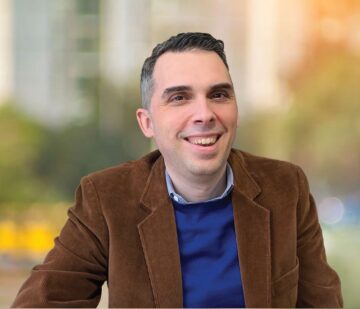

Leave a Reply